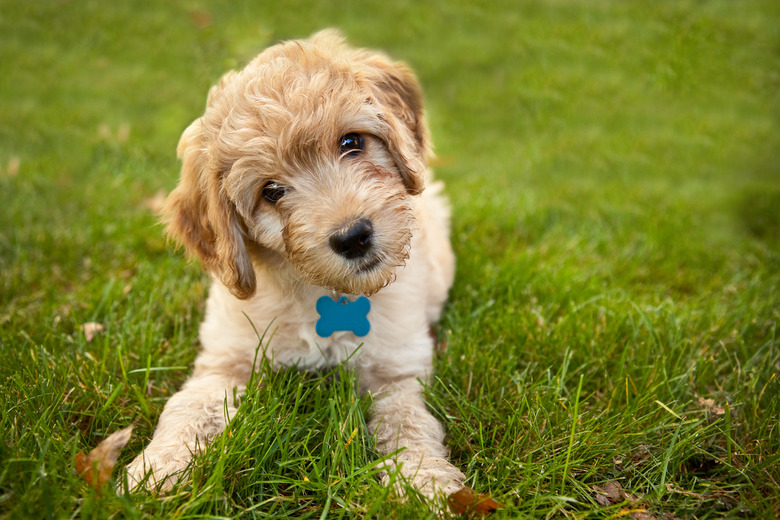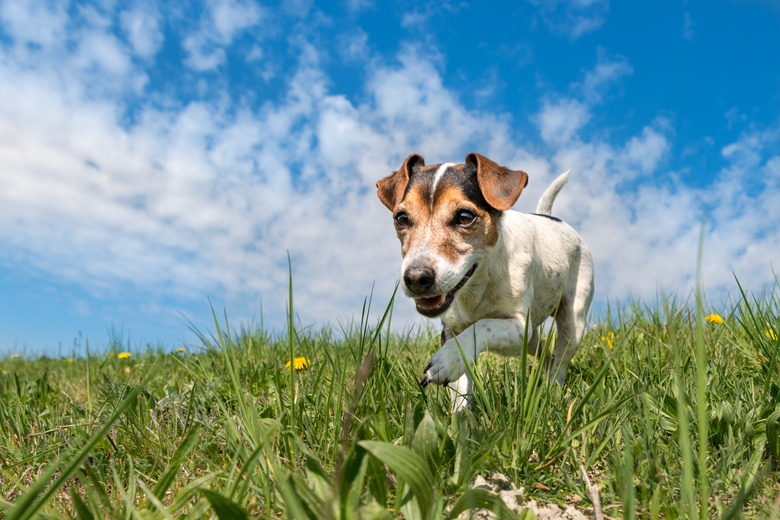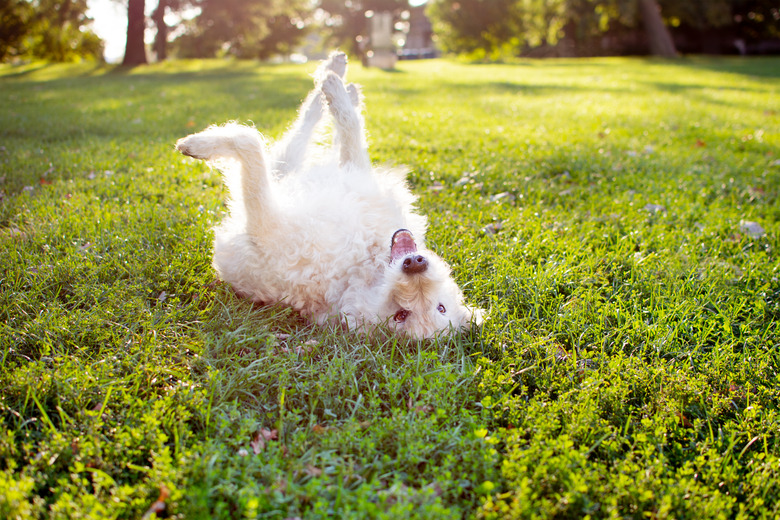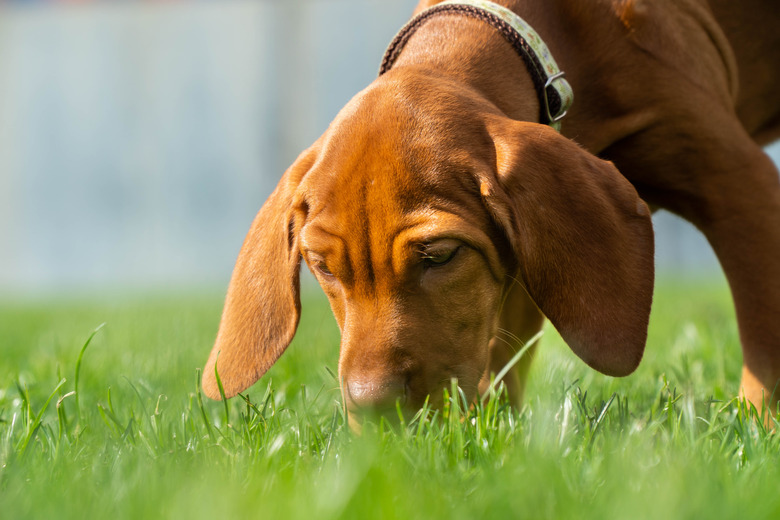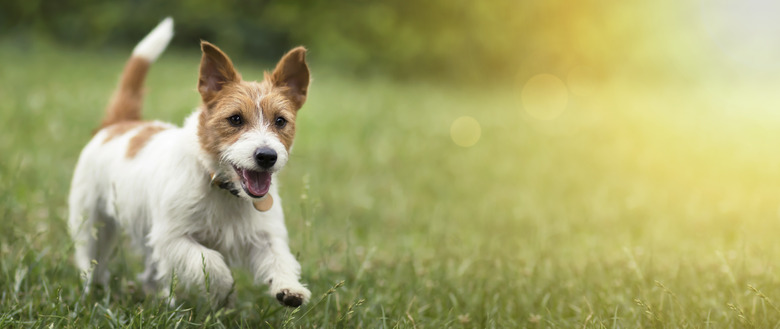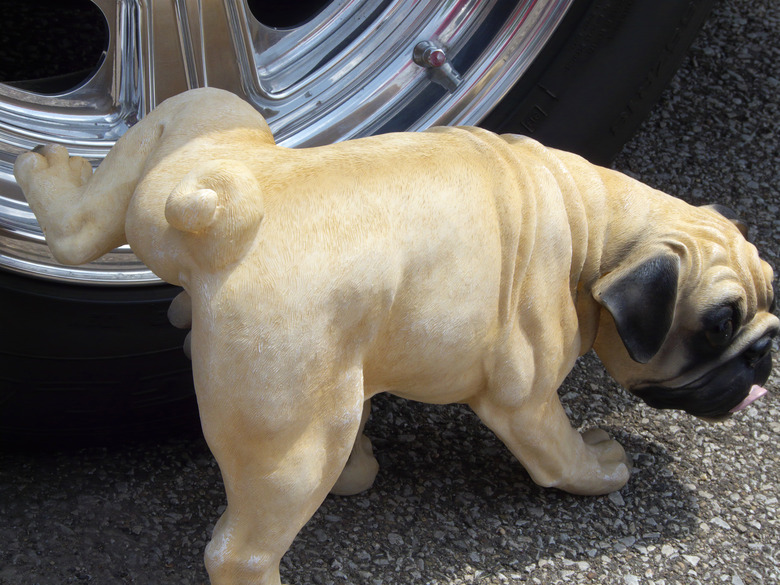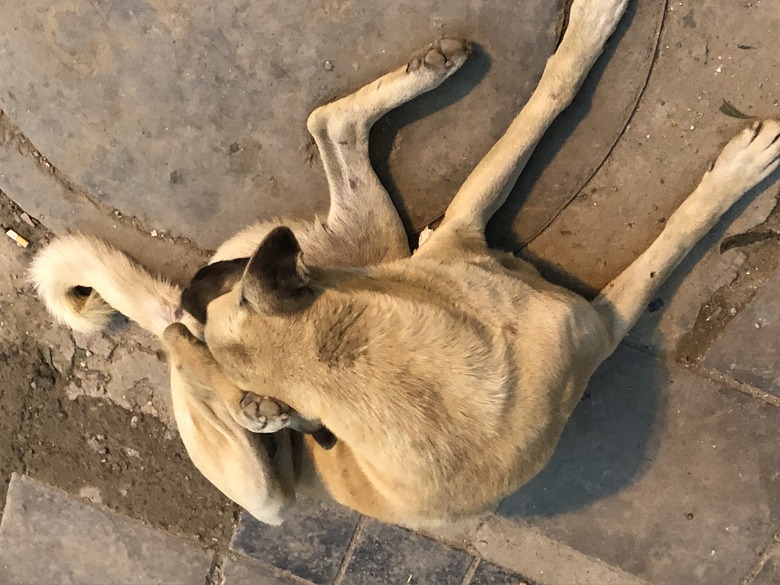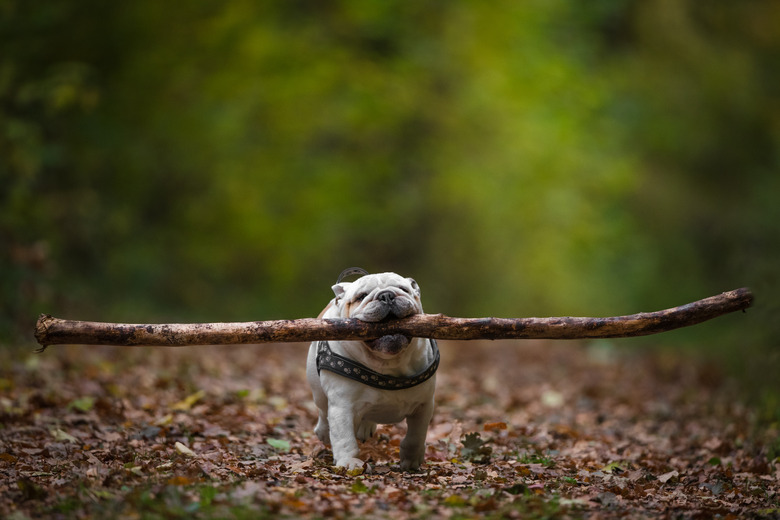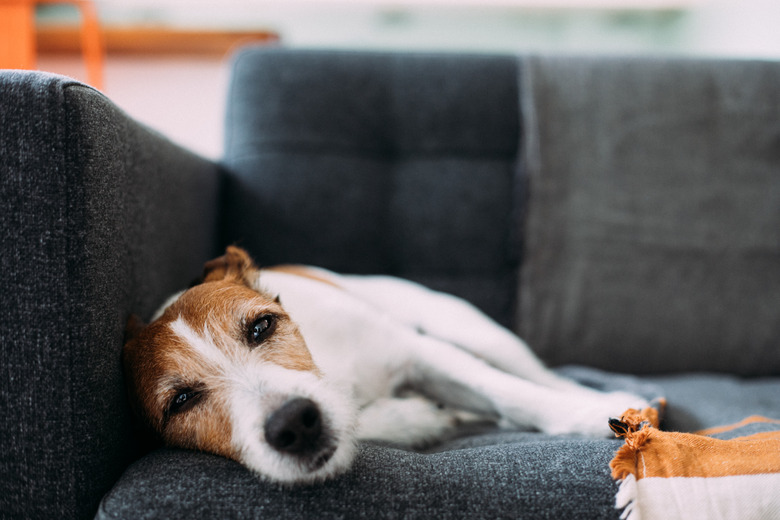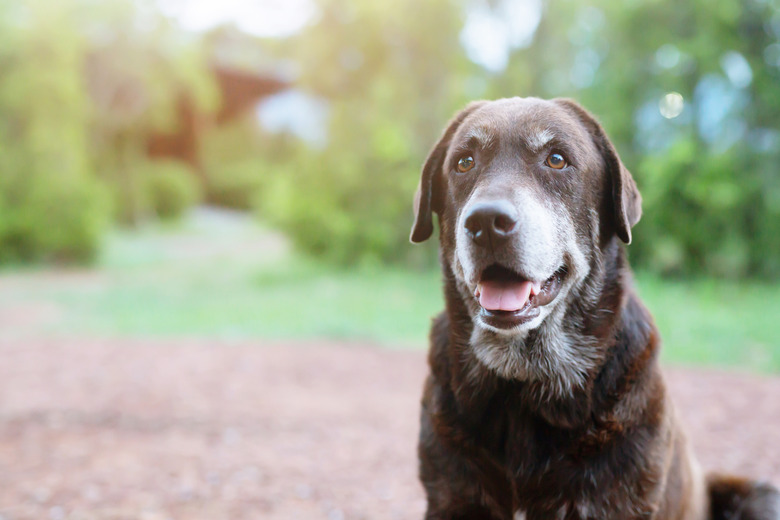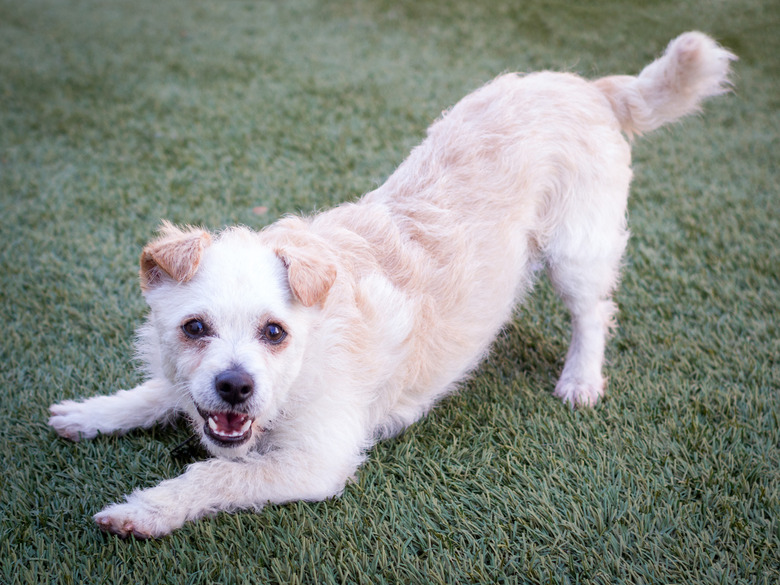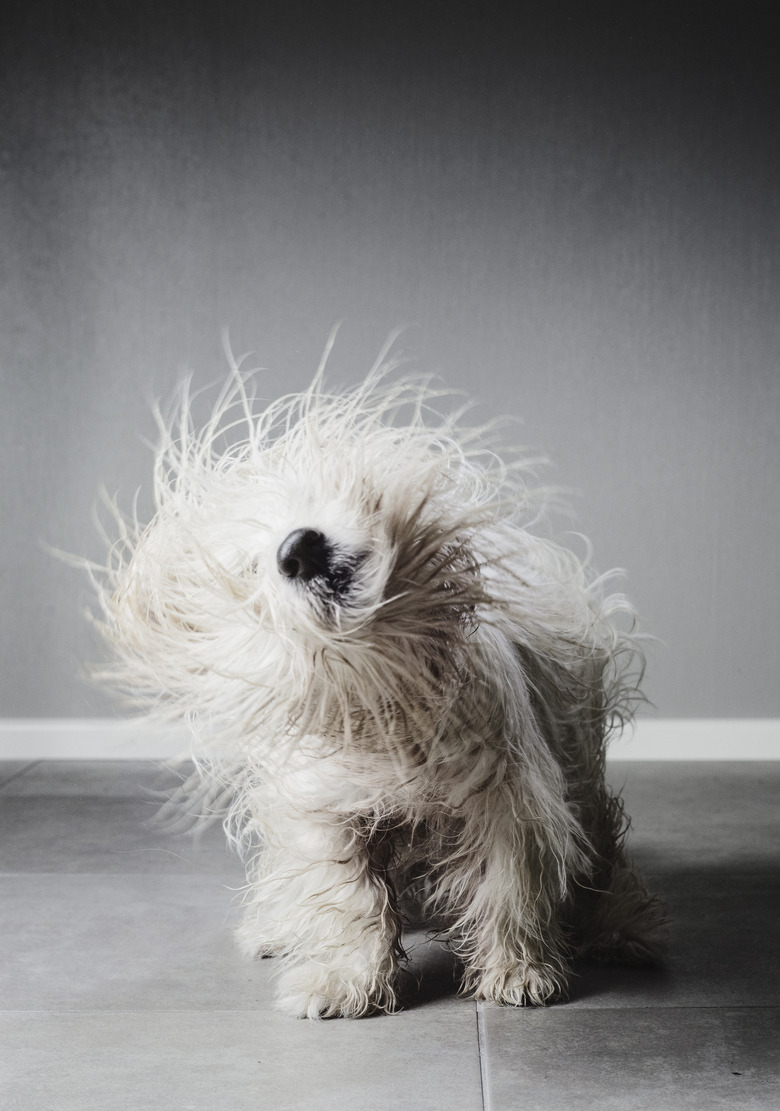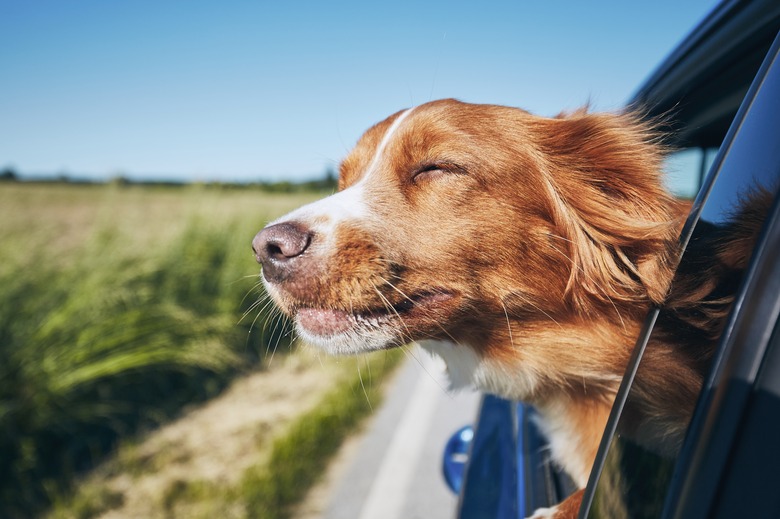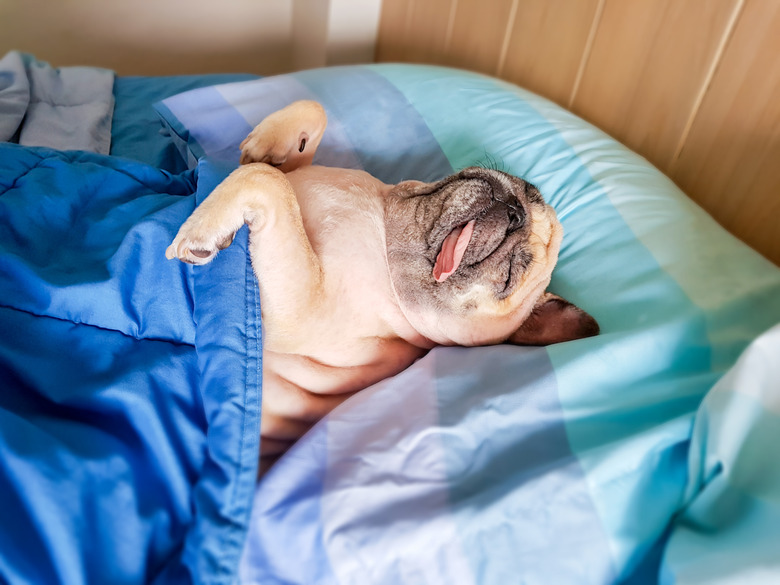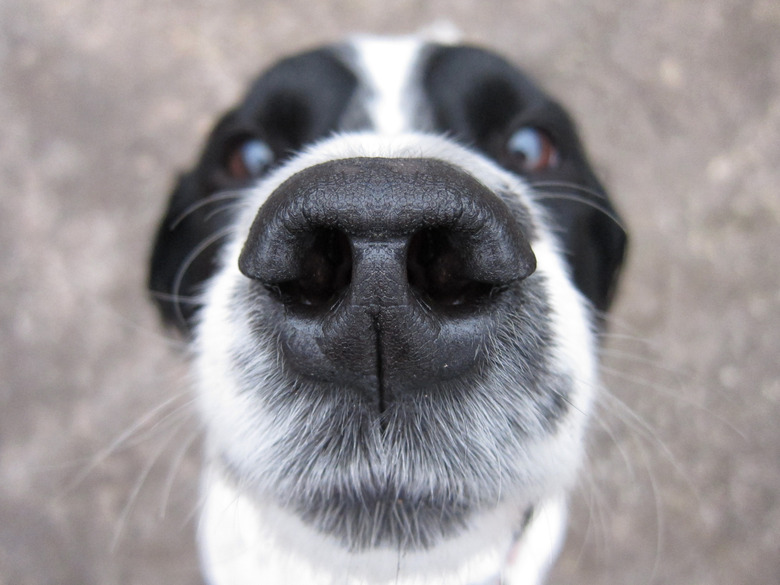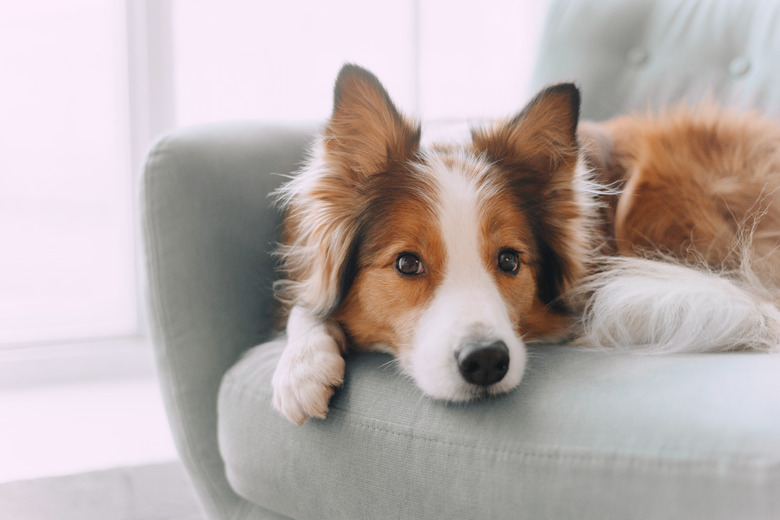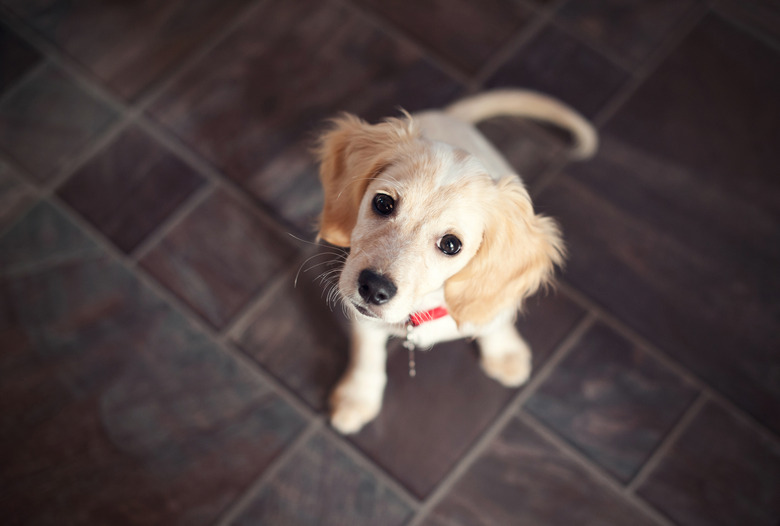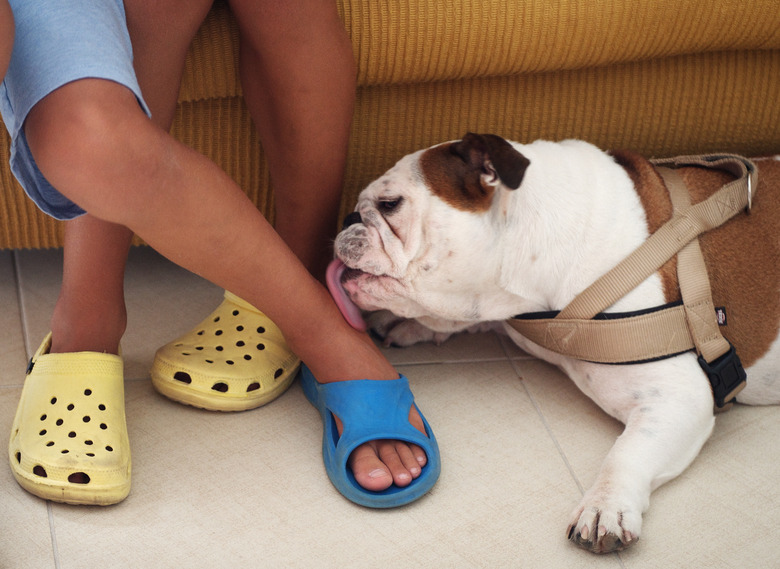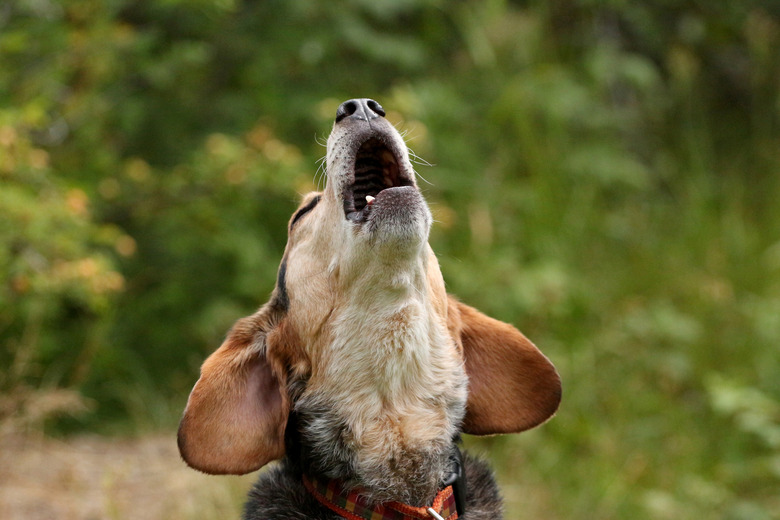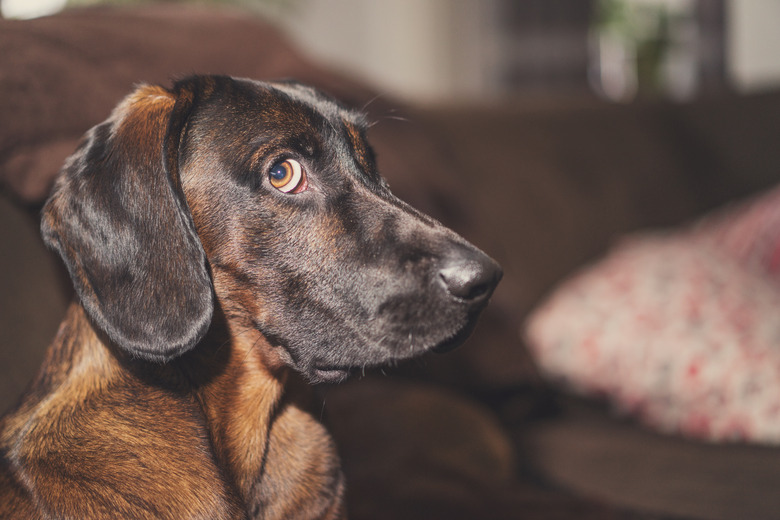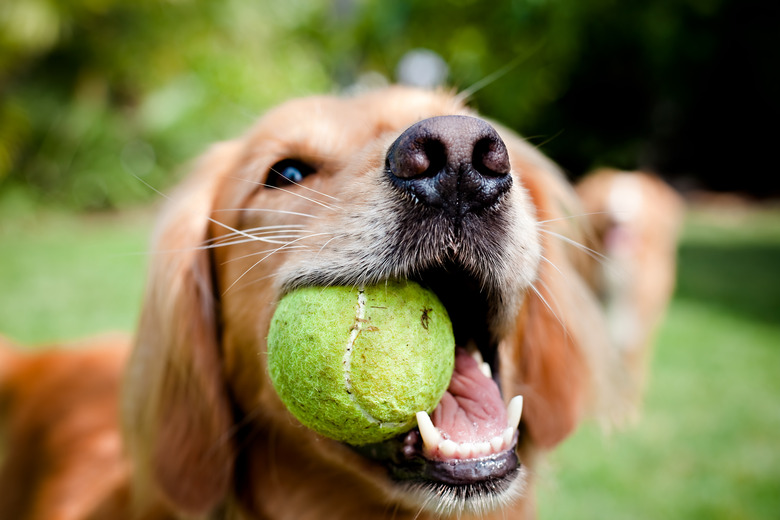Why Does My Dog Do That? 20 Bizarre Dog Behaviors Explained
We may receive a commission on purchases made from links.
Dogs are both amazing and amazingly weird. Of course we love them no matter how odd they act, but that love doesn't stop us from wondering why? Why do dogs do the beautifully bizarre things they do? Here are the reasons behind some of your pup's most head-scratching behaviors.
1. Why does my dog stare at me when he poops?
1. Why does my dog stare at me when he poops?
Up there on the list of "but seriously why" behaviors dogs engage in is the deep eye contact they seem intent on making with us when they poop. Do they have no shame? What are they thinking when they look intently into our eyes while eliminating. While this may seem awkward to us humans, your dog isn't trying to be weird. Instead, he's using deeply-rooted instincts to keep himself safe and comfortable.
2. Why does my dog roll around in poop?
2. Why does my dog roll around in poop?
Speaking of poop-related weirdness, some dogs like to roll around in their own (or other dogs') excrement. Gross, right? Dogs have a penchant for rolling in smelly things. The bad news is that we're still not exactly sure why. The good news is that we have a few theories.
One of the top theories is scent masking. Dogs might roll around in the poop of others because it masks their scent. In the wild, this would be beneficial to dogs because it would throw predators off their trail. It could also mask their scent to potential prey as well. Another theory is that the dog isn't trying to get a scent on them, but to put their scent on the ground. Stephen Harris of the University of Bristol in the UK posits that dogs are trying to deposit their scent, not mask it. Depositing their scent would send a message to other dogs that this is their territory, and they're ready to defend it if necessary.
3. Why does my dog circle around before peeing?
3. Why does my dog circle around before peeing?
While we're on the topic of dogs and their pooping habits, why do they like to circle before doing the deed?
Dogs might go around in circles prior to eliminating as a means of getting their digestive systems ready for the task. By engaging in a little physical activity beforehand, dogs might be able to encourage a fast and smooth elimination experience.
Furthermore, dog feet are equipped with handy scent glands. They employ these glands for labeling their turf. By walking around his future elimination site in repetitive circles, your pet might simply be leaving a scent trail behind; essentially communicating to the world that he owns the place.
Dogs might even circle before eliminating as a relic of their wild origins. If a dog out in nature has to "go potty" in a setting chock full of plants, circling can be a way of smoothing the area out and therefore making for a comfortable and tidier bathroom experience.
4. Why does my dog run around after going poop?
4. Why does my dog run around after going poop?
The weird array of behaviors surrounding pooping doesn't stop when the deed is done. Why do some dogs love to run around after? Well, first of all, it feels good. Sometimes the answer lies in the simplest explanation. Your dog might run around because she feels relieved after pooping, especially if she's been holding it in for a while.
5. Why does my dog pee on car tires?
5. Why does my dog pee on car tires?
Here's another weird bathroom habit some dogs have: peeing on tires, especially in male dogs. Why do dogs do this? Mostly because tires are the right height for leaving a mark.
Many dogs like to pee on vertical objects, like fire hydrants, telephone poles, and, yes, car tires. In her book Canine Behavior: Insights and Answers, author Bonnie V. Beaver explains that male dogs direct their urine at vertical targets 97.6 percent of the time. This behavior is likely because they want to leave their "business card" at nose level, so that it's in the prime position to be smelled by other dogs.
6. Why do dogs lick their butts?
6. Why do dogs lick their butts?
This one isn't directly potty-related, but it still fits in the "gross things dogs do" category, so let's get it out of the way. Why do dogs like to lick their own butts? To a certain degree, it's just normal grooming for your dog. Like cats, dogs lick themselves for grooming purposes, and their anal area isn't exempt from this ritual. Since dogs generally don't have access to toilet paper, they may lick themselves to get rid of any fecal matter that's hanging around. Gross, but a fact of life.
It could be a real issue though. Dogs have two anal glands, also called anal sacs, inside their anus. These glands contain an oily, fishy-smelling liquid that's used to mark territory and ward off predators. Most dogs release a tiny bit of this liquid every time they defecate, but it's common for it to build up within the anal glands and become a nuisance to the dog. When this happens, your dog will need their anal glands expressed. (Don't worry, most veterinarians and groomers will do it for a nominal fee.) You'll know your dog needs their glands expressed if you notice them licking their butt excessively and/or scooting around, especially if this behavior is accompanied by a fishy odor.
7. Why does my dog eat sticks?
7. Why does my dog eat sticks?
Dogs love chewing on just about anything they can get their chompers on, but sticks are way up on the list. What draws dogs to chew on sticks is that they look a lot like bones, which dogs would be very fond of in the wild. Of course, bones would taste meaty and delicious, while sticks definitely don't. Luckily, dogs just don't mind.
Most of the time, dogs are just chewing sticks, spitting them back out and not eating them. If your dog is actually eating sticks, this may be a symptom of greater medical issues including:
- Anemia
- Nutritional or mineral deficiency
- Digestive disorders
- Dental/oral issues
- Hunger
- Behavioral issues
If you see your dog eating a stick, attempt to calmly and gently remove the stick from his mouth. If ingestion has already taken place, contact your veterinarian immediately for further guidance and investigation.
8. Why does my dog sigh all the time?
8. Why does my dog sigh all the time?
Does your dog like to dramatically sigh a lot? Does it baffle you because he has such a great life, there's honestly nothing he should be that exasperated about? You're not alone. Here's the good news: Dogs can sigh for a variety of reasons, but the main reason they sigh is to signal that they are relaxed. However, deep and frequent sighing can indicate that your pet is in pain or suffering from illness.
A sigh can also mean that your pup is calm, content, and entering a deeper state of relaxation — indicated by eyes that are half-closed, according to The Happy Dog Spot. Unfortunately, deep sighing could also indicate a health issue. Frequent sighing accompanied by groaning could indicate that your pet is in pain, so take him to the vet immediately.
Pet MD also reports that deep sighing can indicate that your pet is lethargic. If the sighing is accompanied by unusual behavior such as no longer wanting to play, refusing to eat, and no longer responding, this could be a sign of a much larger health problem and you should consult with a veterinarian immediately.
9. Why does my dog freak out when I take his collar off?
9. Why does my dog freak out when I take his collar off?
You would think dogs would be grateful to have their collars and harnesses taken off — like the incomparable relief you feel after taking off a tight pair of jeans at the end of the day. But for some dogs, having a collar removed is a time to freak out, not relax.
Behavioral triggers might be to blame for this. If your dog only wears a collar when he's out of the house, he'll soon come to understand that having his collar taken off signifies the impending end of his walk or playtime. Likewise, if you only take off his collar when he's about to run free in a field, the anticipation of that payoff might cause an excited freak out.
10. Why does my dog drop to the ground when he sees another dog on a walk?
10. Why does my dog drop to the ground when he sees another dog on a walk?
If you've ever walked your dog and noticed another dog approaching in the distance, only to have your dog drop to the ground and refuse to move until the other puppy gets to you, then you know this bizarre instinct first hand. Here's the good news: When your dog drops to the ground upon seeing another dog, they want to play; they aren't scared or gearing up for an attack.
Sharon Crowell-Davis, DVM, DACVB, professor in the College of Veterinary Medicine at the University of Georgia, says that dropping to the ground is "a play solicitation." Dogs, like humans, use body language to communicate. By lying down, your dog may be making herself appear smaller or nonthreatening to the approaching dog.
11. Why does my dog shake when he's not wet?
11. Why does my dog shake when he's not wet?
When a dog is soaked to the bone, he shakes vigorously to dry himself off. We all get that. But why do some dogs shake like they're wet when they're definitely not? Part of it goes back to your dog's primal instincts. In the wild, a dog would sleep on the ground and wake up covered in dirt and bugs, which he would shake off. So, shaking after a nap may just be leftover instinct from those wilder days.
It could also be that your dog is shaking off an emotion, like a literal interpretation of the Taylor Swift song. Many dogs shake themselves after an emotional moment, whether a good or bad one. For example, they might shake after having an almost-fight with another dog or almost a long, intense hug from you. Don't worry, he's not trying to tell you he didn't like the hug. According to an article in Modern Dog Magazine, shaking after something intense is just a way of "walking it off" so he can go back to his normal, not-so-intense daily routine.
12. Why does my dog stick his head out of car windows?
12. Why does my dog stick his head out of car windows?
Dogs sticking their heads out of car windows is so ubiquitous it can be hard to find a commercial for an SUV or truck that doesn't showcase this behavior. But why? Why do dogs love it so much? A first, and obvious, answer is that it's fun. Just look at the pure joy on your dog's face the next time he does this.
It's also a great opportunity for your pup to immerse himself in new sights and smells. Just like humans, dogs like to see where they're going and check out interesting sights along the way. The typical pet spends most of his day at home, often locked inside the house while his owners are at work. A trip in the car is an exciting opportunity to break the monotony. But the most common reason animal experts give for the canine thrill of windsurfing out the car window is all the exciting smells outside. Your dog's nose is amazingly powerful. It's estimated that a dog's sense of smell is between ten thousand and one hundred thousand times better than a person's, and his brain devotes 40 percent more power to analyzing smells than your own. With his head hanging out the car window, your pup can savor an incredible range of odors.
13. Why does my dog sleep on her back?
13. Why does my dog sleep on her back?
It might look ridiculous to us, but sleeping on their backs tells you a lot about how safe and comfortable your dog feels. Typically, a sound-asleep pooch on his back means he's supremely comfortable around you, and he feels safe. In the wild, dogs, like all animals, worry about predators and so protect their bellies by sleeping on them. They also sleep belly-down so that they can get up quickly in case something comes by to harass the pack. A safe, secure-feeling dog is not worried about being belly-up to the world.
Dogs also roll on their backs when awake and that behavior can be traced back to their wolf ancestors. In wolf culture, rolling onto the back is a show of deference to the alpha of the pack, much the way a bowed head shows deference among certain people. Rolling over also helps wolves get out of potential danger by peacefully persuading an aggressor to back off.
14. Why does my dog sniff my crotch?
14. Why does my dog sniff my crotch?
When it comes to dogs doing weird, uncomfortable things, sniffing our crotches has to be up there. But why do they engage in this, well, invasive behavior? Believe it or not, your dog isn't trying to embarrass you. They're simply on a lifelong quest for information, and they're gathering this information mostly by smell.
Pheromones are the reason why dogs sniff our crotches (and our butts, too). They might also be the reason your dog steals your underwear. We have higher concentrations of pheromones in our genital and anal areas than any other part of our body, which makes them rich sources of information for our canine friends. The more you know, right?
15. Why does my dog move his ears up and down?
15. Why does my dog move his ears up and down?
Dogs might not be able to speak to us, but they have a lot of ways of communicating. So what are they trying to tell us when they move their ears up and down? Canines utilize the positioning of their ears to express a wide array of different emotions, moving them up and down with every passing mood.
When your dog's ears are up, it's a good sign. It means he's likely feeling excited, happy, content, and confident. If your dog's ears are down, keep an eye on him. It might be signaling vulnerability or fear.
16. Why does my dog scratch tiled floors?
16. Why does my dog scratch tiled floors?
Many puppies go through destructive phases and owners are (or should be) prepared for that. But when your dog is an adult and still prone to scratching something you'd like him not to scratch, things can get frustrating. Why do some dogs love to scratch tile floors?
Part of the behavior is just instinct. Dogs are naturally wired to dig. Scratching at the ground helped wild dogs create secure and comfortable nests where they could rest. Since scratching and digging behaviors were useful to wild dogs, the urge to continue that practice is literally hardwired into canine DNA. Despite access to comfortable and secure sleeping areas in their modern homes, many domesticated dogs find it hard to resist the urge to create a nest by scratching at the ground.
The dog is also marking his territory. Scratching tile floors or any other surface is a form of canine communication. When a dog scratches at the floor, he is claiming that spot as his own. The bottom of a dog's paws has special glands that release a territorial scent onto the floor when the dog scratches. The odor lets other dogs know that they need to keep moving because the scented spot has already been claimed.
17. Why does my dog lick my wounds?
17. Why does my dog lick my wounds?
Have you ever hurt yourself — a scraped knee or a paper cut, perhaps — and noticed that your dog is obsessed with licking your wound? Here's why: They're instinctively trying to help you (they're not bloodthirsty).
Licking wounds seems to be an instinctual reaction to the injury. Nobody instructs a child to suck a burned finger, and nobody teaches a dog to lick a cut paw. But instinct can be biologically based and often serves a purpose. When a dog licks a wound, or a newborn puppy, it cleans it in much the same way you might clean a counter with a sponge. Recent studies also indicate that licking can protect against infection.
18. Why does my dog howl at music?
18. Why does my dog howl at music?
Have you ever noticed that your dog loves to howl when you play music? First and foremost, it's a form of communication. The sound of the music might remind him of other dog howls, and he'll howl back at you because it makes perfect sense to him that that's what you want him to do. If you've ever heard the chain reaction of one dog howling leading to the entire block of pups having a howl-fest, you've witnessed this form of dog talk.
Like so many of the weird things our dogs do, howling at music can also be traced back to their wild days as wolves. Wolves in the wild will howl to communicate with one another. Wolves use howling a little differently than your canine does. Since the high-pitched wail of a howl can be heard over great distances, one wolf will howl to another to let him know his position. It's kind of like wolf GPS. If the pack is spread out over acres of wilderness, a howl can help bring them back together.
19. Why does my dog eat clothes?
19. Why does my dog eat clothes?
Have you ever been doing laundry, only to catch your dog stealing clothes from the basket out of the corner of your eye? Why do dogs love to chew on clothes so much? There are a few reasons. Your dog could be anxious or hungry and trying to get the message to you. He could also just be bored.
Also, they taste and smell good. Some things are just fun to chew on. A puppy may munch on your clothing because he likes the texture, or because the fabric tastes good.
Additionally, a dog will often chew on clothing that smells like his owner as a way of comforting himself in your absence. If your dog tends to focus on dirty clothes, his chewing could be related to how much he enjoys being close to you and your smell. Dogs with this type of chewing problems are sometimes drawn to clothing with your cologne, sweat or deodorant. A hamper with a lid is an excellent method for preventing this problem.
20. Why does my dog love tennis balls so much?
20. Why does my dog love tennis balls so much?
We buy our dogs everything, and that often includes fancy chews and expensive toys. But sometimes, their favorite toy is a cheap, simple tennis ball. Why do dogs love tennis balls so much? Put simply, tennis balls are a great stand in for tiny, erratic prey now that we've domesticated dogs.
Prey in the wild is panicked and sporadic as it scurries around, trying to preserve its life. When you throw a tennis ball, it bounces all over the place and mimics this desperate prey behavior. This movement sends an immediate alarm to a dog's instinct to chase, capture, and devour! In his book Oh Behave! Dogs from Pavlov to Premack to Pinker, Jean Donaldson explains that when a dog catches prey in its mouth and swiftly shakes it side to side, the dog is breaking the prey's neck in order to kill it. You will see your dog take this very same action with a tennis ball after he "captures it." Dogs are aware that tennis balls are not rabbits but will still take pleasure in practicing their hunting skills and letting their natural instincts take over.
Summary
Dogs are lovable but weird. From potty behaviors to odd rituals, the real explanations for some of your dog's most baffling and bizarre behaviors are largely rooted in ancient instincts.
